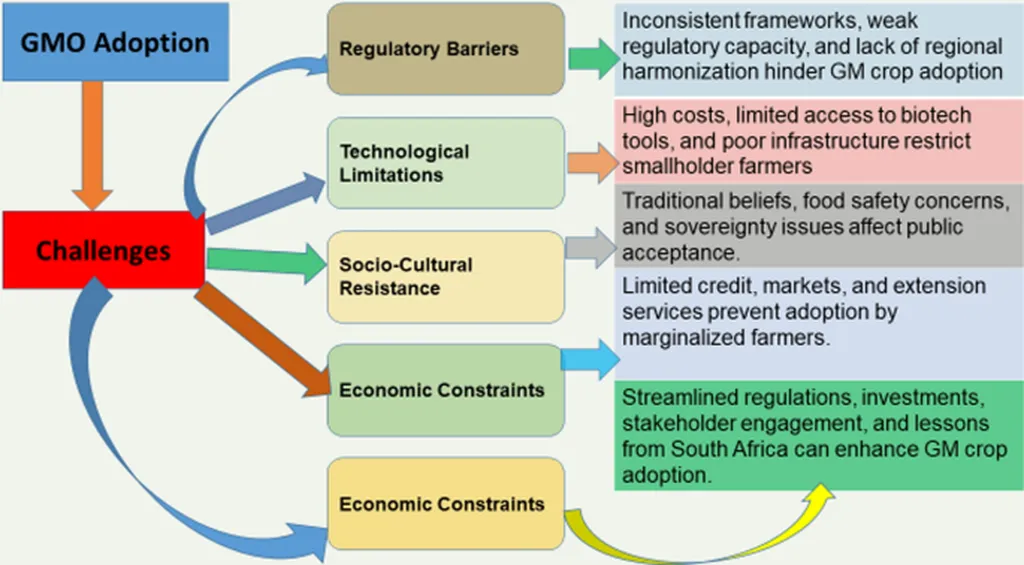In the heart of Sub-Saharan Africa, where agriculture is the backbone of many economies, a silent revolution is taking place. Genetically modified (GM) maize is emerging as a game-changer, promising to boost productivity, enhance food security, and improve farm returns. However, the journey towards widespread adoption is fraught with challenges, as revealed by a comprehensive systematic review published in *Frontiers in Sustainable Food Systems*.
The study, led by Athenkosi Ngqulana from the Discipline of Agricultural Extension and Rural Resource Management at the University of KwaZulu-Natal, Scottsville, Pietermaritzburg, South Africa, delves into the critical role of agricultural extension services in enhancing the technical efficiency of GM maize adoption. By analyzing 68 peer-reviewed studies from 2011 to 2024, the review sheds light on the nuanced dynamics at play.
“Effective extension services are pivotal in improving the technical efficiency of GM maize adoption,” Ngqulana asserts. The review underscores that well-designed extension programs can significantly bridge the gap between potential and actual benefits of GM maize. This is particularly crucial for smallholder farmers, who constitute a substantial portion of the agricultural workforce in Sub-Saharan Africa.
However, the path is not without obstacles. The review identifies several barriers that hinder the widespread adoption of GM maize. Limited information, stringent regulations, high seed costs, and biosafety concerns are among the key challenges. These factors not only slow down the adoption process but also create a knowledge gap that needs to be addressed urgently.
The commercial implications of these findings are profound. Enhanced technical efficiency through effective extension services can lead to increased productivity and better farm returns, which are essential for the economic growth of the region. As Ngqulana points out, “Targeted support for smallholder farmers and tailored extension programs that address their specific needs are essential for maximizing the benefits of GM maize.”
The review also calls for greater collaboration between government agencies, NGOs, and local communities. By fostering inclusive extension strategies, these stakeholders can work together to bridge knowledge gaps and promote sustainable agricultural practices. This collaborative approach is crucial for ensuring that the benefits of GM maize are realized across the board.
Looking ahead, this research could shape future developments in the field by highlighting the importance of targeted support and collaboration. As the agricultural sector continues to evolve, the insights from this review will be invaluable in guiding policy decisions and extension strategies. By addressing the identified barriers and leveraging the strengths of extension services, Sub-Saharan Africa can harness the full potential of GM maize to drive agricultural productivity and food security.
In the words of Ngqulana, “The future of GM maize in Sub-Saharan Africa lies in our ability to adapt and innovate, ensuring that the benefits reach those who need them most.” This vision, coupled with the findings of the review, sets the stage for a more productive and sustainable agricultural future in the region.

